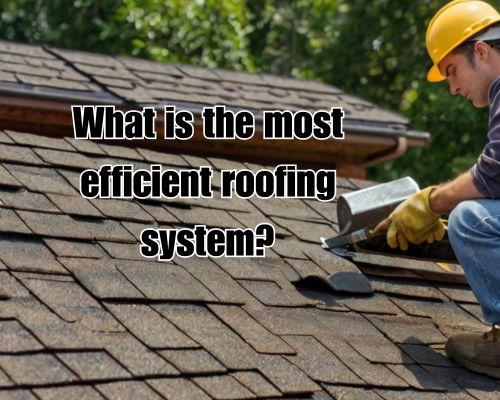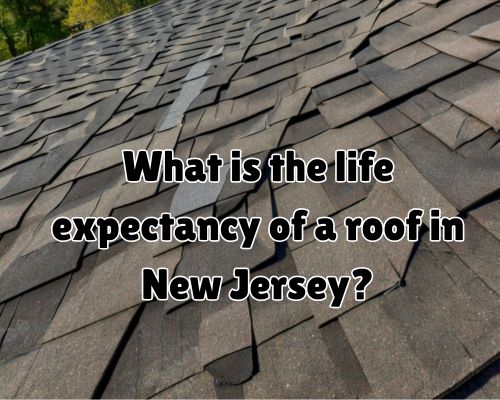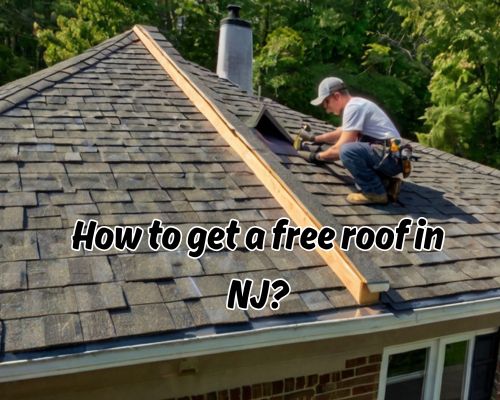In the diverse climate of New Jersey, where freezing winters, humid summers, and coastal storms are the norm, choosing an efficient roofing system isn’t just a smart decision—it’s an essential investment. If you’re asking, “What is the most efficient roofing system?”, you’re likely weighing cost savings, energy performance, durability, and long-term maintenance.

With CJ Commercial Roofing NJ, we will break down the top contenders, compare roofing technologies, and explore why certain materials outperform others in terms of thermal regulation, longevity, and cost-effectiveness—all while keeping local conditions and New Jersey roofing codes in focus.
Understanding Efficiency in Roofing: Beyond Just Energy Savings
Efficiency in a roofing system doesn’t simply mean lower electricity bills—though that’s part of it. A truly efficient roof:
- Reduces energy usage (heating and cooling)
- Lasts longer with minimal maintenance
- Protects against moisture and weather damage
- Improves indoor comfort year-round
- Provides ROI through increased home value
Given New Jersey’s climatic variability—from Nor’easters to summer heat waves—choosing the right system also means thinking about insulation, ventilation, reflectivity, and wind resistance.
Top Efficient Roofing Systems for New Jersey Homes
Here’s a look at the most efficient roofing systems that are gaining traction among NJ homeowners and commercial property developers.
1. Metal Roofing (Standing Seam or Aluminum Panels)
Efficiency Rating: ★★★★★
Metal roofing systems, especially standing seam metal roofs, are becoming a leading choice for New Jersey homeowners prioritizing efficiency.
Why it’s efficient:
- High solar reflectance index (SRI): Metal roofs reflect UV rays instead of absorbing them, lowering cooling costs by up to 25%.
- Durability: Can last 40–70 years with minimal upkeep.
- Recyclable material: Eco-friendly and sustainable.
- Compatible with solar panels: New Jersey’s strong solar incentives (like NJ Clean Energy Program rebates) pair well with metal roofs.
Local Relevance:
In areas like Cherry Hill, Princeton, and Morristown, standing seam metal roofs are being installed in both modern homes and historical restorations thanks to their energy efficiency and sleek aesthetics.
2. Cool Roofs (Reflective Coatings on Existing Roofs)
Efficiency Rating: ★★★★☆
Cool roofs use reflective coatings that bounce solar radiation away from the home. These are ideal for flat or low-slope roofs, commonly found in Newark commercial buildings and Jersey City rowhomes.
Key benefits:
- Lower interior temps in summer
- Reduced HVAC load
- Can be applied to existing membranes or asphalt roofs
Cool roofing is also eligible for LEED credits and often qualifies for energy-efficiency tax incentives in New Jersey.
3. Asphalt Shingle Roofs with Solar Reflective Technology
Efficiency Rating: ★★★★☆
Standard asphalt shingles are notorious heat absorbers. However, architectural shingles and energy-efficient asphalt products, like those with CRRC-rated reflective granules, offer a cost-effective and efficient solution for NJ homes.
Highlights:
- Lower upfront cost than metal or slate
- Available in ENERGY STAR® rated options
- Compatible with attic ventilation systems
LSI Keywords: architectural shingles, cool roof asphalt, ENERGY STAR roofing, GAF Timberline HDZ.
New Jersey-based roofing manufacturers like GAF, headquartered in Parsippany, NJ, offer high-efficiency asphalt shingles designed specifically for Northeast climates.
4. Slate and Clay Tile Roofs
Efficiency Rating: ★★★☆☆
While heavier and more costly, natural slate and clay tile roofs offer excellent insulation properties, especially in large traditional homes across Montclair and Ridgewood.
Pros:
- Superior thermal mass: Retains and slowly releases heat
- Aesthetically appealing
- Lasts 75+ years
Cons:
- High cost
- Requires reinforced structure
- Less practical for storm-prone zones unless properly secured
5. Green Roofs (Vegetative Systems)
Efficiency Rating: ★★★★☆ (Urban and Commercial Use)
Green or living roofs are highly efficient in urban New Jersey areas like Hoboken, Jersey City, and parts of Trenton.
Efficiency advantages:
- Excellent insulation year-round
- Reduces stormwater runoff
- Improves air quality
- Provides natural cooling
Often used on commercial buildings and multi-family dwellings, these systems can qualify for stormwater management credits in NJ municipalities.
Local Factors That Influence Roofing Efficiency in New Jersey
Efficiency isn’t one-size-fits-all. In New Jersey, specific environmental and regulatory variables make some systems more practical than others.
1. Climate & Weather Resilience
- Strong winds and snow loads (especially in northern NJ) demand impact-rated and wind-resistant materials.
- UV exposure and humidity in coastal zones (like Atlantic City) require moisture-resistant and reflective roofing membranes.
2. Building Codes & Permits
The New Jersey Uniform Construction Code (UCC) outlines strict compliance for roofing upgrades. Roofs must:
- Meet wind uplift resistance standards
- Incorporate adequate insulation (R-30 or higher for most residential systems)
- Include proper ridge ventilation or powered attic vent systems
3. Energy Incentives & Rebates
NJ residents benefit from:
- NJ Clean Energy rebates for solar and efficiency upgrades
- Federal solar tax credit (ITC) if integrating solar systems
- Property tax exemptions for energy-efficiency improvements
Comparative Table: Efficiency Breakdown by Roofing System
| Roofing Type | Lifespan | Energy Efficiency | Cost (Avg/NJ) | Weather Resistance | Notes |
|---|---|---|---|---|---|
| Standing Seam Metal | 40–70 yrs | ★★★★★ | $10–$16 per sq. ft. | Excellent | Solar-friendly |
| Reflective Asphalt Shingles | 20–30 yrs | ★★★★☆ | $4–$8 per sq. ft. | Good | Budget-friendly |
| Cool Roof Coating (Flat) | 10–20 yrs | ★★★★☆ | $1.50–$3 per sq. ft. | Moderate | Great for retrofits |
| Slate/Clay | 50–100 yrs | ★★★☆☆ | $15–$30 per sq. ft. | Excellent | Heavy, costly |
| Green Roofs | 30–50 yrs | ★★★★☆ | $15–$25 per sq. ft. | Excellent | Ideal for flat roofs |
Final Verdict: Which Roofing System Is the Most Efficient in NJ?
If you’re seeking the most efficient roofing system in New Jersey, metal roofing—particularly standing seam systems—stand out due to their high reflectivity, durability, low maintenance, and solar readiness. When paired with proper attic insulation and ventilation, they outperform other systems across the board.
However, if budget is a primary concern, ENERGY STAR-rated architectural shingles can offer a good balance between affordability and efficiency, especially when combined with cool roof coatings or radiant barriers.
Final Thoughts: Roofing for the Future in the Garden State
The question “What is the most efficient roofing system?” isn’t just theoretical—it has real implications for property value, energy usage, and climate resilience in New Jersey. Whether you’re upgrading your Cape Cod in Red Bank, retrofitting a brownstone in Jersey City, or building a new home in Hunterdon County, the right roof can enhance your home’s performance while reducing your environmental impact.
✅ Pro Tip: Always hire licensed New Jersey roofing contractors like CJ Commercial Roofing NJ familiar with both local zoning laws and energy rebate programs to ensure compliance and maximize efficiency.
💬 Still unsure which system fits your New Jersey home or building? Consult a local roofing expert who understands the state’s environmental demands, municipal regulations, and available rebates.
📍 From Montclair to Moorestown, your roof’s efficiency could be the key to year-round comfort and long-term savings.

